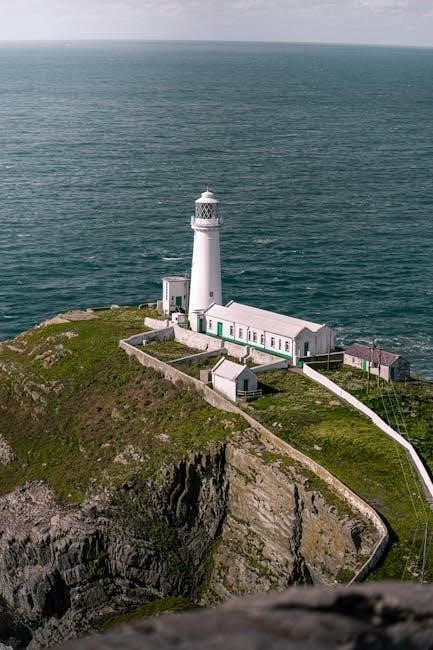The Idaho Outfitters and Guides Licensing Board regulates and licenses professionals ensuring safe, ethical, and environmentally responsible outdoor experiences, upholding industry standards and public trust.
1.1 Purpose of the Licensing Board
The Idaho Outfitters and Guides Licensing Board ensures safe and ethical outdoor experiences by regulating the industry. Its purpose is to protect consumers, maintain high standards, and preserve Idaho’s natural resources. The board enforces licensing requirements, monitors compliance, and addresses complaints to uphold professionalism and environmental responsibility. By promoting transparency and accountability, the board fosters trust between outfitters, guides, and the public, ensuring sustainable practices and exceptional service delivery in Idaho’s vast wilderness areas.
1.2 Overview of the Outfitting and Guiding Industry in Idaho
Idaho’s outfitting and guiding industry thrives due to its vast wilderness and diverse outdoor activities like hunting, fishing, rafting, and horseback riding. The industry supports local economies and attracts tourists seeking authentic adventures. With numerous licensed outfitters and guides, the state offers world-class experiences, ensuring safety and environmental stewardship. This sector is crucial for preserving Idaho’s natural beauty and providing memorable experiences for visitors, making it a cornerstone of the state’s outdoor recreation economy.
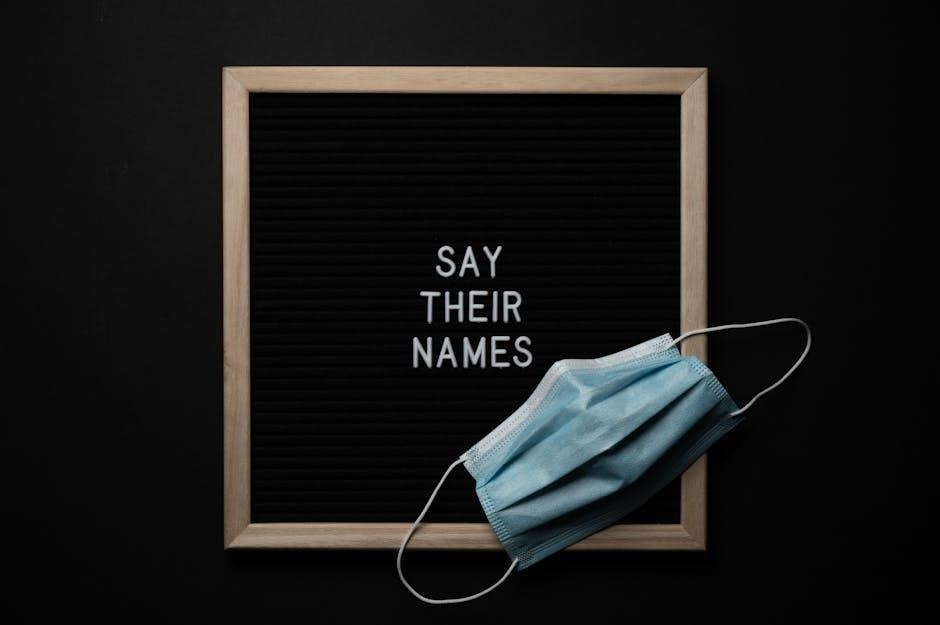
Licensing Requirements for Outfitters and Guides in Idaho
Licensing ensures outfitters and guides meet state standards, providing safe and professional services. Requirements include eligibility criteria, documentation, and fees to operate legally in Idaho.
2.1 Eligibility Criteria for Obtaining a License
To obtain a license, applicants must meet specific criteria. They must be at least 18 years old, provide proof of Idaho residency, and demonstrate relevant experience or training. Additionally, they must complete a background check and hold valid liability insurance. First aid certification is also required for guides. These requirements ensure that outfitters and guides operate safely and professionally, maintaining high industry standards and protecting both clients and the environment. The board verifies all documentation before issuing a license to ensure compliance with state regulations.
2.2 Application Process and Required Documentation
The application process involves submitting a completed license application form, proof of residency, and documentation of relevant experience or training. Applicants must also provide liability insurance certificates and first aid certification. A non-refundable fee is required with the application. Additional documentation, such as a background check, may be requested. The board reviews all materials to ensure compliance with state regulations. Once approved, the license is issued, allowing the applicant to operate legally within Idaho. This process ensures that all outfitters and guides meet the necessary standards to provide safe and professional services.
2.3 Fees Associated with Licensing
Licensing fees for outfitters and guides in Idaho are essential to maintain regulatory oversight and ensure industry standards. The fees vary depending on the type of license and services offered. Application fees, renewal fees, and specialty license fees are common. Additional costs may include insurance premiums and background check expenses. These fees help fund the licensing board’s operations, including enforcement and education programs. Payment of all required fees is necessary to obtain and maintain a valid license, ensuring legal operation within the state.

Types of Licenses Offered by the Board
The Idaho Outfitters and Guides Licensing Board offers Outfitter Licenses for businesses and Guide Licenses for individuals. Specialized licenses cover activities like hunting, fishing, and rafting, ensuring diverse outdoor experiences while maintaining safety and quality standards.
3.1 Outfitter Licenses
An Outfitter License is required for businesses that organize and conduct outdoor activities such as hunting, fishing, rafting, and horseback riding in Idaho. These licenses ensure that outfitters meet specific safety, environmental, and ethical standards. They are issued to companies that provide guided trips and equipment rentals, promoting responsible tourism. The license also verifies that the outfitter has adequate insurance and adheres to state regulations. It is essential for maintaining public trust and ensuring high-quality outdoor experiences for clients. The licensing process involves submitting detailed operational plans and meeting all legal requirements.
3.2 Guide Licenses
A Guide License is issued to individuals who lead specific outdoor activities like hunting, fishing, or rafting in Idaho. Guides must meet eligibility criteria, including completing required training and passing exams. The license ensures they possess the necessary skills and knowledge to safely conduct trips. Guides are also required to carry proper insurance and stay updated on industry regulations. This licensing ensures that clients receive high-quality, safe, and enjoyable experiences. The process involves submitting an application, paying fees, and demonstrating expertise in their specialized activity. This maintains the integrity and professionalism of Idaho’s guiding industry.
3.3 Specialized Licenses (e.g., Hunting, Fishing, Rafting)
Specialized licenses are tailored for specific activities like hunting, fishing, or rafting. These licenses ensure that guides possess expertise in their niche, adhering to Idaho’s diverse outdoor offerings. For instance, a hunting guide license requires knowledge of game management and season regulations, while a rafting license demands proficiency in whitewater safety. Applicants must complete activity-specific training and pass competency tests. This system ensures that clients receive specialized, safe, and professional guidance, enhancing their outdoor experiences in Idaho’s unique landscapes. The licensing board meticulously reviews each application to uphold high standards across all specialized fields.
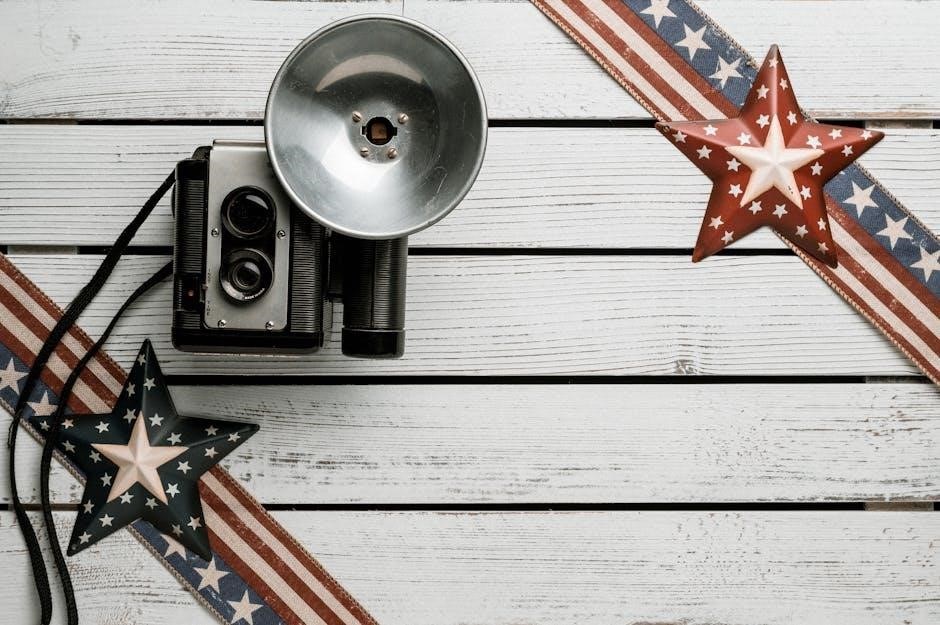
Continuing Education and Professional Development
The Idaho Outfitters and Guides Licensing Board requires ongoing education to maintain licensure, ensuring professionals stay updated on industry standards, safety protocols, and best practices, fostering professionalism and accountability.
4.1 Mandatory Training Courses for License Renewal
To maintain their licenses, Idaho outfitters and guides must complete mandatory training courses. These courses cover essential topics such as safety protocols, first aid, and environmental best practices. The curriculum is designed to ensure professionals stay updated on industry standards and regulations. Specialized courses may also address specific activities like hunting or rafting. These training programs are regularly updated to reflect evolving industry needs and technological advancements. By completing these courses, outfitters and guides demonstrate their commitment to professional development and public safety, ensuring high-quality experiences for clients while adhering to regulatory requirements.
4.2 Workshops and Seminars for Professional Growth
The Idaho Outfitters and Guides Licensing Board offers workshops and seminars to enhance professional skills and industry knowledge. These events cover topics like client communication, emergency preparedness, and environmental stewardship. They provide platforms for networking and sharing best practices among industry professionals. Many workshops are led by experienced outfitters and guides, ensuring practical insights. These opportunities foster continuous improvement, helping professionals stay updated on industry trends and regulatory changes. By attending, outfitters and guides can refine their expertise, offering safer and more rewarding experiences for clients while maintaining high industry standards.
4.3 Importance of Staying Updated on Industry Standards
Staying updated on industry standards is crucial for outfitters and guides to ensure compliance, safety, and environmental sustainability. Evolving regulations, safety protocols, and best practices require continuous learning. Updated knowledge helps professionals adapt to new challenges, such as changing weather patterns or wildlife management strategies. By staying informed, outfitters and guides can maintain high service quality, protect Idaho’s natural resources, and uphold their reputation. This commitment to current standards fosters trust with clients and contributes to the long-term success of the outfitting and guiding industry in Idaho.

Insurance and Liability Requirements
Insurance and liability coverage are essential for Idaho outfitters and guides to protect their businesses and clients. Policies typically include general liability, equipment, and accident coverage.
5.1 Types of Insurance Required for Outfitters and Guides
Outfitters and guides in Idaho are required to carry specific types of insurance, including general liability, equipment insurance, and accident insurance. These policies protect against risks such as injuries, property damage, and equipment loss. Liability coverage is particularly crucial to cover potential legal claims arising from accidents or disputes; The Idaho Outfitters and Guides Licensing Board mandates that all licensed professionals maintain adequate insurance coverage to ensure the safety and security of clients and operations. This requirement helps safeguard both businesses and customers, fostering a reliable and trustworthy industry environment.
5.2 Liability Coverage and Its Importance
Liability coverage is essential for Idaho outfitters and guides to protect against potential legal claims arising from accidents, injuries, or property damage. This coverage ensures financial protection for both the business and clients, maintaining trust and reliability. Adequate liability insurance is crucial for mitigating risks associated with outdoor activities, such as hunting, fishing, or rafting. Without proper coverage, outfitters and guides could face significant financial losses, damaging their reputation and operational continuity. Thus, liability coverage is a cornerstone of the licensing requirements, safeguarding the industry’s integrity and client confidence.
5.3 How to Obtain the Necessary Insurance Coverage
To secure the required insurance, outfitters and guides in Idaho can contact specialized insurance providers or brokers familiar with outdoor recreation risks; Many providers offer tailored policies for activities like hunting, fishing, or rafting. Additionally, the Idaho Outfitters and Guides Licensing Board often provides a list of approved insurance companies. Applicants should ensure policies meet minimum liability coverage requirements and include provisions for equipment, accidents, and property damage. Securing the right coverage is crucial for compliance and protecting both businesses and clients. Proper insurance ensures operational continuity and builds client trust.
Ethical Considerations and Best Practices
Idaho outfitters and guides must adhere to a strict code of ethics, prioritize environmental sustainability, and ensure client safety while maintaining honesty and professionalism in all operations.
6.1 Code of Ethics for Outfitters and Guides
The Idaho Outfitters and Guides Licensing Board mandates a strict code of ethics, emphasizing honesty, integrity, and respect for the environment. Guides and outfitters must prioritize client safety, adhere to sustainable practices, and uphold fair labor standards. They are expected to maintain professional conduct, avoid conflicts of interest, and respect wildlife and natural resources. By adhering to this code, they ensure trust and integrity in the industry, fostering a positive reputation for Idaho’s outdoor adventures and preserving its natural heritage for future generations.
6.2 Environmental Responsibility and Sustainable Practices
Idaho outfitters and guides are required to prioritize environmental stewardship, minimizing their ecological footprint. They must adhere to sustainable practices, such as proper waste management, preserving natural habitats, and promoting responsible tourism. Guides are trained to educate clients on Leave No Trace principles, ensuring minimal impact on Idaho’s pristine landscapes. Sustainable practices not only protect the environment but also safeguard the long-term viability of outdoor activities like hunting, fishing, and rafting, ensuring future generations can enjoy Idaho’s natural beauty and resources. This commitment is integral to the licensing standards and industry ethics.
6.3 Client Safety and Satisfaction
Ensuring client safety and satisfaction is a top priority for Idaho outfitters and guides. Licensed professionals are trained to conduct thorough risk assessments, provide proper safety briefings, and maintain high standards of service. Guides are equipped to handle emergencies and ensure clients have a positive experience. Client feedback is crucial, with many outfitters relying on reviews to improve services. The licensing board encourages transparency and accountability, fostering trust between clients and guides. This focus on safety and satisfaction helps build lasting relationships and supports the growth of Idaho’s outdoor recreation industry.
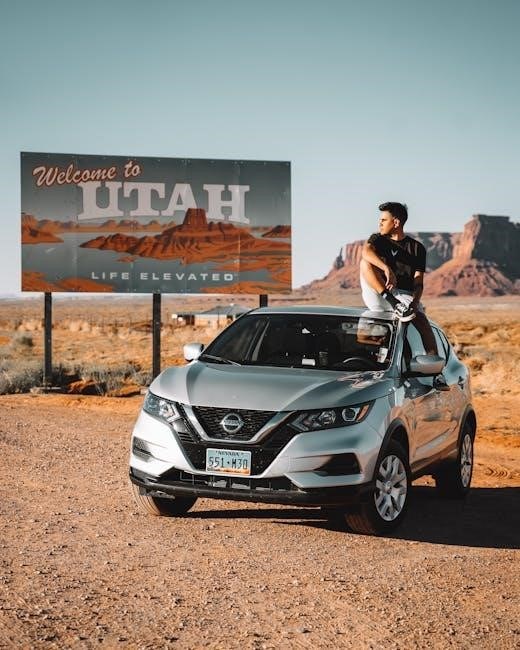
Enforcement and Disciplinary Actions
The Idaho Outfitters and Guides Licensing Board rigorously monitors compliance, investigates complaints, and imposes penalties for violations, ensuring accountability and maintaining public trust in the industry.
7.1 Monitoring Compliance with Licensing Regulations
The Idaho Outfitters and Guides Licensing Board employs a comprehensive system to monitor compliance with licensing regulations. This includes regular audits of outfitter and guide operations, reviews of required documentation, and field inspections to ensure adherence to safety, environmental, and ethical standards. The Board also collaborates with state agencies to verify that all licensed professionals meet the necessary criteria and operate within legal boundaries. Non-compliance is identified promptly, and appropriate measures are taken to address violations, safeguarding both clients and the industry’s integrity. This proactive approach ensures that all outfitters and guides maintain the highest standards of professionalism and accountability.
7.2 Handling Complaints Against Licensed Outfitters and Guides
The Idaho Outfitters and Guides Licensing Board has a structured process for addressing complaints against licensed professionals. Complaints are typically submitted through an online portal or via mail and are reviewed promptly. Each complaint is categorized based on severity and investigated thoroughly. The Board may conduct interviews, inspect records, or consult with experts to resolve disputes fairly. If violations are confirmed, appropriate disciplinary actions are taken, ranging from warnings to license revocation. This system ensures transparency, accountability, and protection of clients’ interests while maintaining trust in the outfitting and guiding industry.
7.3 Penalties for Violations of Licensing Requirements
Violations of licensing requirements by outfitters and guides in Idaho may result in penalties, including fines, license suspension, or revocation. The severity of the penalty depends on the nature and recurrence of the violation. Fines can range from $500 to $5,000 or more for serious offenses. Repeat offenders may face mandatory training or probation. In extreme cases, such as endangering client safety or illegal activities, licenses may be permanently revoked. The Board ensures these penalties are enforced to maintain industry integrity and protect public interests.
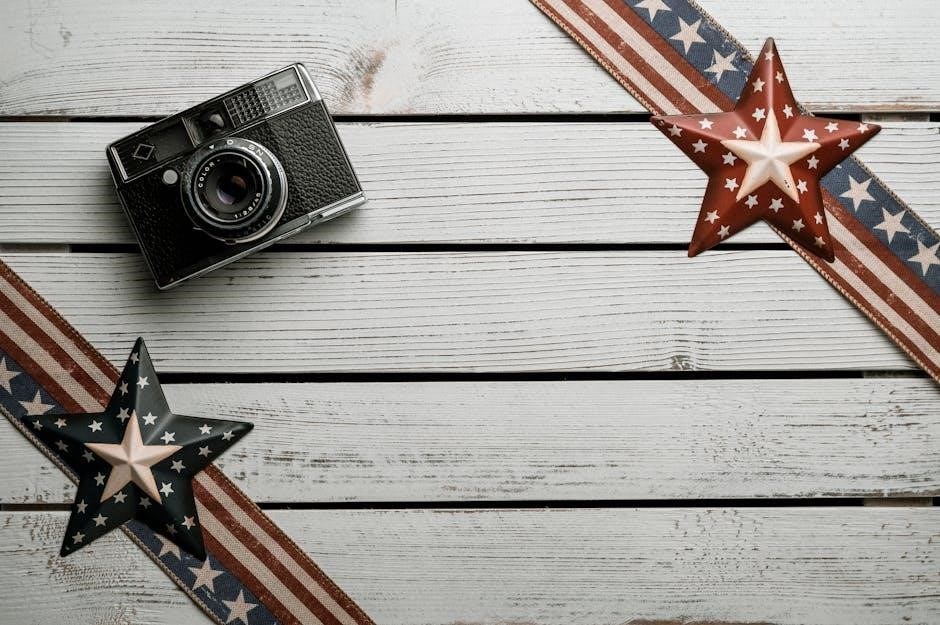
The Impact of the Licensing Board on the Industry
The Idaho Outfitters and Guides Licensing Board promotes professionalism, safety, and environmental responsibility, fostering trust and maintaining high industry standards for outdoor adventures in Idaho.
8.1 How Regulation Has Shaped the Industry
Regulation by the Idaho Outfitters and Guides Licensing Board has elevated industry standards, ensuring professionalism and accountability. Licensing requirements have fostered a culture of safety, environmental responsibility, and ethical practices. By setting clear guidelines, the Board has helped outfitters and guides operate with integrity, protecting both clients and natural resources. These regulations have also promoted transparency and fairness, creating a more structured and reputable industry. As a result, Idaho’s outdoor adventures have become safer and more enjoyable, attracting enthusiasts while preserving the state’s pristine wilderness areas for future generations.
8.2 Benefits of Licensing for Consumers
Licensing ensures consumers hire qualified, insured professionals, enhancing safety and service quality. It verifies guides’ expertise, reducing risks and ensuring ethical practices. Consumers gain confidence knowing outfitters meet strict standards, adhere to environmental regulations, and prioritize client satisfaction. Licensing also provides recourse for complaints, protecting clients’ investments. This framework fosters trust and accountability, making Idaho’s outdoor adventures safer and more enjoyable while supporting sustainable tourism practices that preserve the state’s natural beauty for future generations.
8.3 Challenges Faced by the Licensing Board
The Idaho Outfitters and Guides Licensing Board faces challenges such as balancing regulatory oversight with industry growth, ensuring compliance across diverse activities, and addressing public concerns. Monitoring remote operations and enforcing ethical practices can be difficult. Additionally, the board must adapt to evolving industry needs, such as new types of guided activities, while maintaining high standards. Balancing the interests of outfitters, guides, and the public, while managing limited resources, presents ongoing challenges for the board in maintaining the integrity and safety of Idaho’s outdoor guiding industry.

Finding a Licensed Outfitter or Guide in Idaho
Idaho offers online directories like Huntinfo and IOGA, enabling searches by activity. These platforms provide reviews, testimonials, and essential details to help clients find trusted guides.
9.1 Online Directories and Search Tools
Idaho’s licensed outfitters and guides can be easily found through official online directories like Huntinfo and the Idaho Outfitters and Guides Association (IOGA) website. These platforms offer detailed search tools, allowing users to filter by activity type, location, and services offered. Many directories provide listings with contact information, descriptions of services, and links to individual websites. Some platforms also feature reviews and ratings from previous clients, helping potential customers make informed decisions. These resources ensure accessibility and transparency for those seeking reputable outdoor guides in Idaho.
9.2 Reviews and Testimonials from Previous Clients
Reviews and testimonials from previous clients are invaluable for evaluating Idaho outfitters and guides. Platforms like Huntinfo and the IOGA website feature feedback, helping potential clients assess service quality, guide expertise, and overall satisfaction. Positive testimonials highlight professionalism, safety, and memorable experiences, while negative reviews may signal red flags. Many outfitters, such as Castle Creek Outfitters and Wild Idaho Outfitters, showcase glowing testimonials, emphasizing their commitment to client satisfaction and ethical practices. These insights aid in making informed decisions when selecting a trusted guide or outfitter for outdoor adventures in Idaho.
9.3 Questions to Ask Before Hiring an Outfitter or Guide
Before hiring an Idaho outfitter or guide, ask about their licensing, experience, and insurance coverage. Inquire about their familiarity with the specific activity and location. Request details on safety protocols and emergency procedures. Ask for references or testimonials from past clients. Clarify the services included in the package and any additional costs. Discuss their approach to environmental responsibility and sustainable practices. Understanding their client-to-guide ratio and equipment quality is also essential. These questions ensure a safe, enjoyable, and professional outdoor experience in Idaho.



